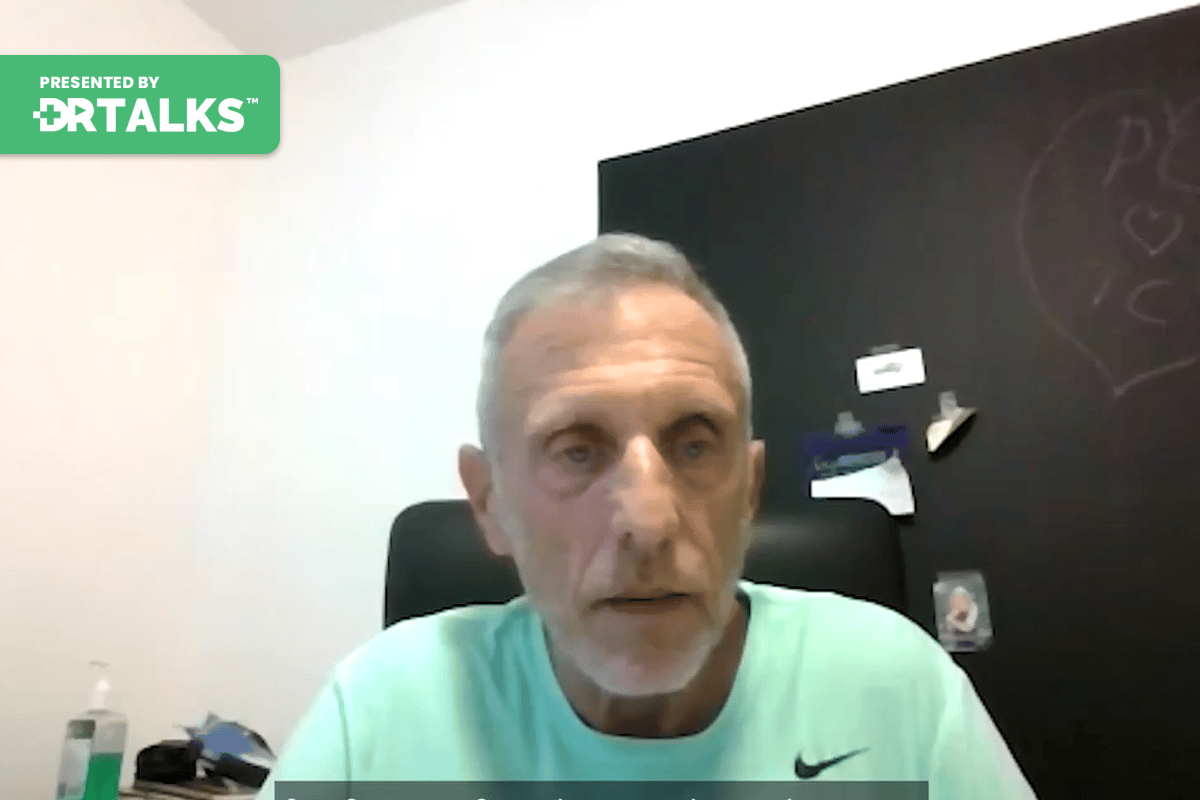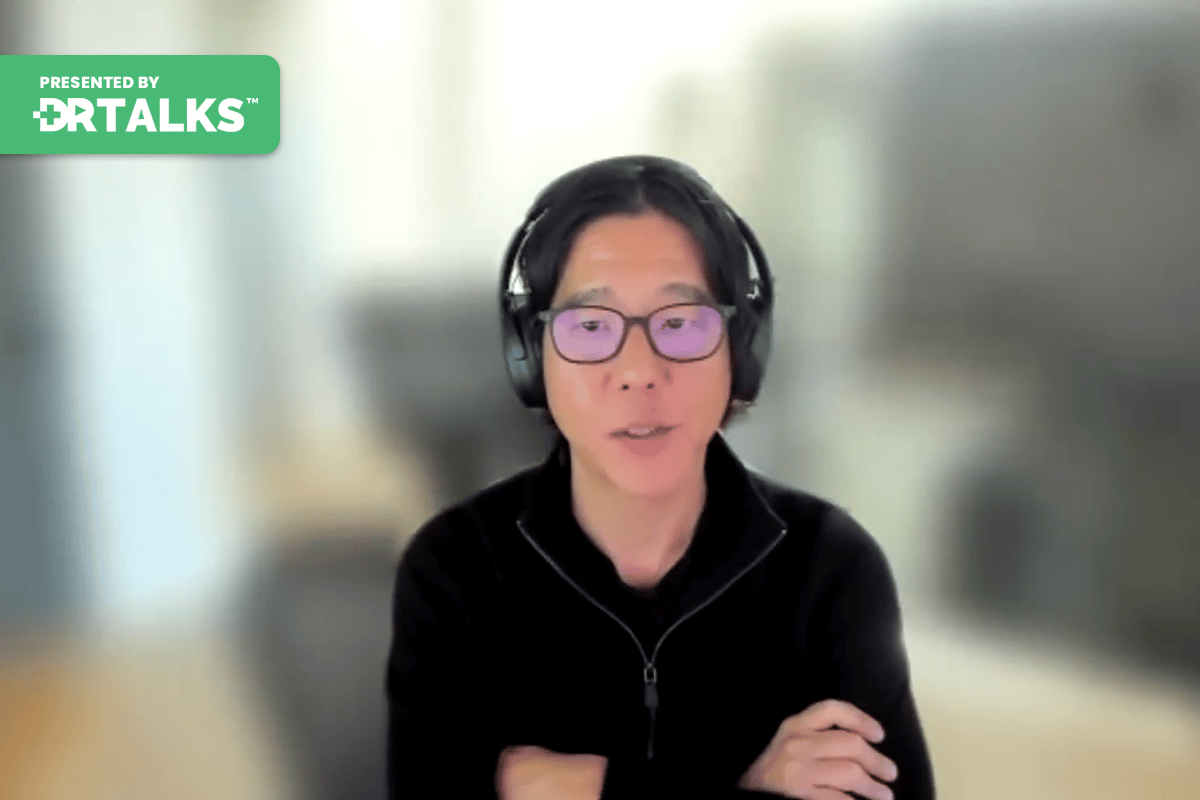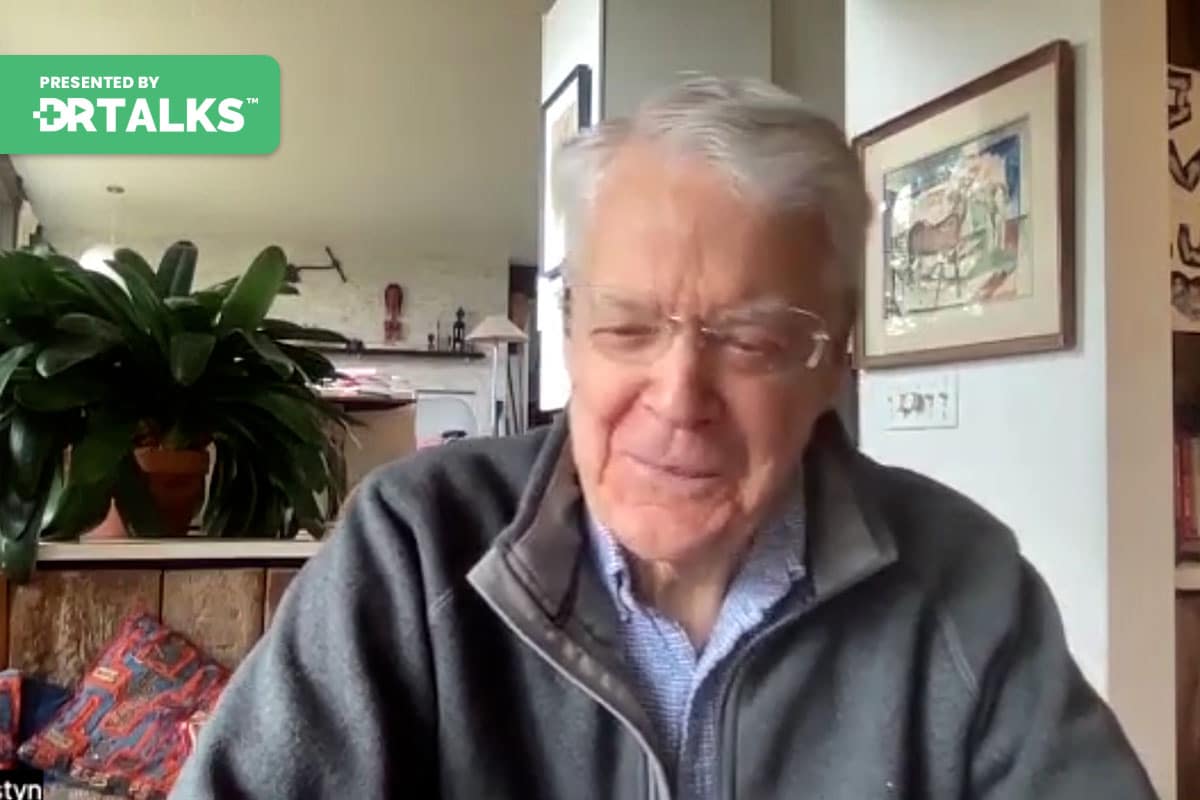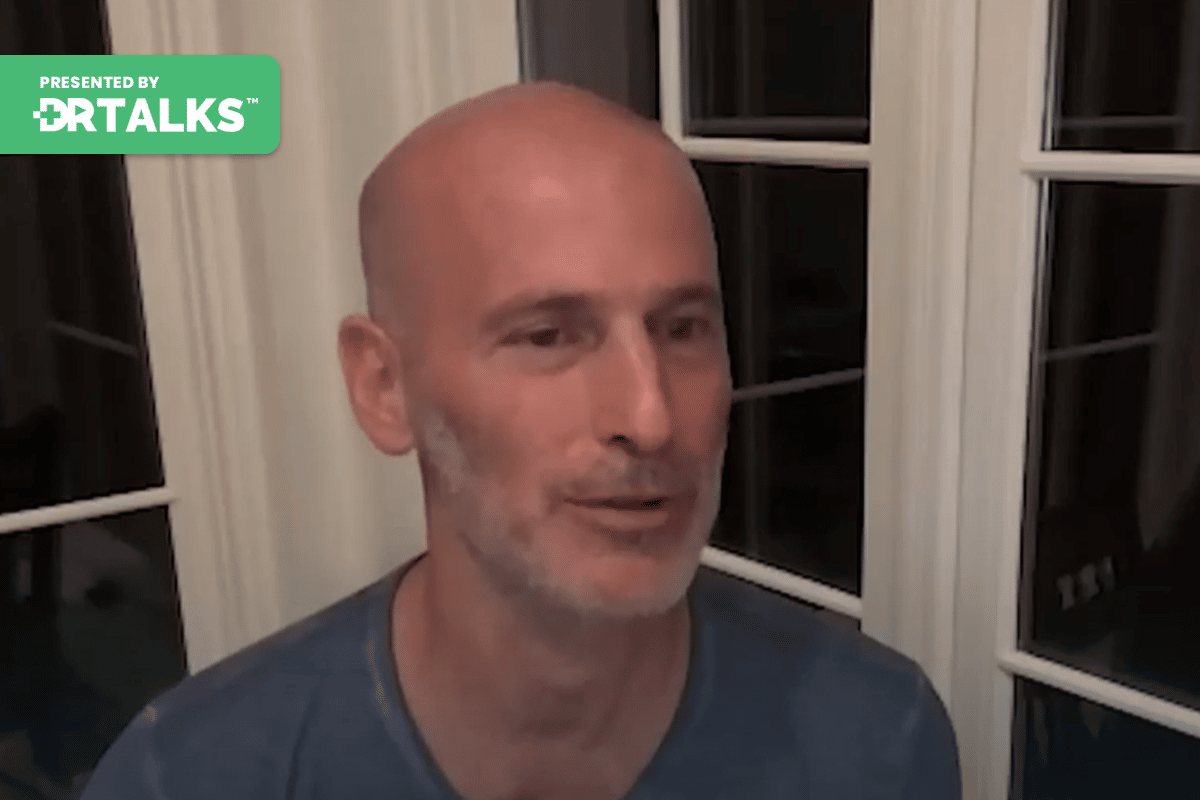Join the discussion below
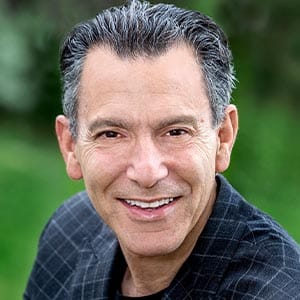
Joel Kahn, MD, FACC of Detroit, Michigan, is a practicing cardiologist, and a Clinical Professor of Medicine at Wayne State University School of Medicine. He graduated Summa Cum Laude from the University of Michigan Medical School. Known as “America’s Healthy Heart Doc”. Dr. Kahn has triple board certification in Internal... Read More
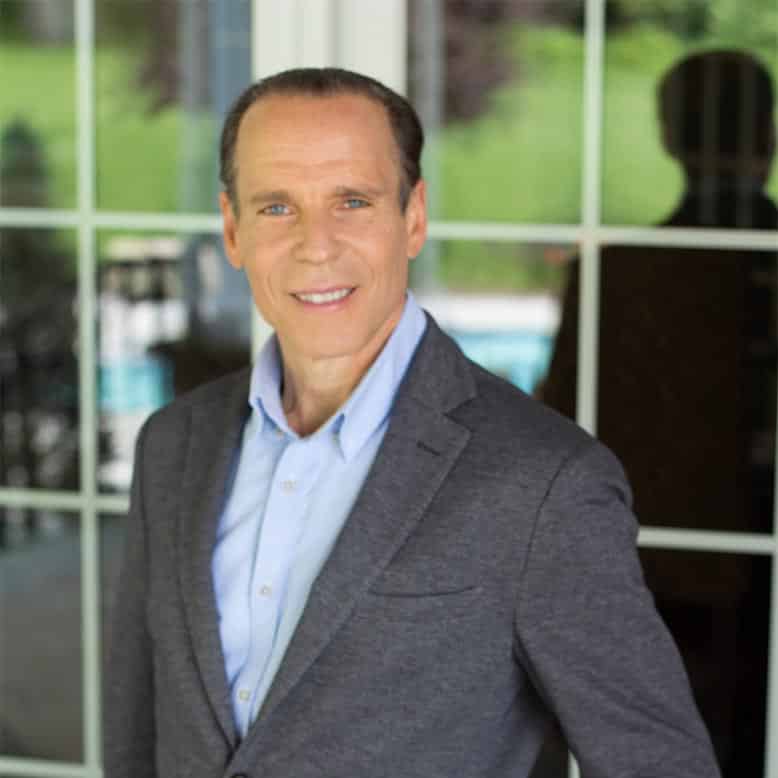
Joel Fuhrman, MD is a board-certified family physician and nutritional researcher who specializes in preventing and reversing disease through nutritional and natural methods. He is the president of the Nutritional Research Foundation and author of seven New York Times bestsellers: Eat For Life, Eat to Live, The End of Diabetes,... Read More
- Key features of the Nutritarian dietary program that makes it most effective for lowering blood pressure and cholesterol and reversing heart disease
- Fat intake and heart disease risk and the importance of seeds/nuts for the heart
- The most important finding from nutritional science over the last decade is the modulation of protein
- The importance of monitoring the omega-3 index when using plant-based diets
Joel Kahn, MD, FACC
Well, welcome everybody. A really, really exciting conversation today with my incredible co-host, Joel Fuhrman, MD. Hi Joel, How are you?
Joel Fuhrman, MD
Hey, good to see you.
Joel Kahn, MD, FACC
We’re pretty much spanning the continent of the United States. You’re on the west coast and me mid west, not quite all the way to the east, but we’re gonna hopefully bring some good information to this Reverse Heart Disease Naturally Summit. And you are an expert and you have written a definitive book without being too commercial. It sits in my office proudly, so I’ll proudly show it, one of, I believe your seven “New York Times” bestselling books. But let’s dig in, I mean, you have more than three decades of being a physician and I think lots of people, of course, I skipped a bio on you, but as a co-host, everybody will be very familiar with your incredible, incredible years as a physician and a leader in medicine. And you created what most people, you know, call the nutritarian diet. And why is it that the nutritarian diet is so crucial for success in reversing heart disease? And obviously tell everybody what is the nutritarian diet?
Joel Fuhrman, MD
Well, a nutritarian diet is a diet designed to maximize human lifespan, slow the aging process, and be the pinnacle of the gold standard you could say of dietary excellence. And what I’m saying right now, this incredibly stupid sounding sentence, that a diet that’s healthier is healthier than one that’s less healthy. Sounds so ridiculous, but the diet that extends human lifespan and slows aging the most is most effective at losing weight, reversing diabetes, lowering blood pressure, reversing heart disease, preventing cancer. In other words, the healthiest diet is also better, most efficient to use as an intervention to reverse disease. So the features of a nutritarian diet obviously are that it contains a high nutrient density, a high nutrient bang per caloric buck, especially paying attention to foods that are rich in phytochemicals and antioxidants. So it’s an antioxidant and phytochemical rich diet, affords the body the ability to reduce reactive oxygen species and reduce inflammation dramatically. It’s also relatively, you can say, a low caloric density. So you can eat a lot of foods that are rich in nutrients but are low in calories like mushrooms and peppers and tomatoes and green vegetables and, you know, and eggplant. And so, we’re eating a lot of food with food volume. It recognizes that raw vegetables, especially raw green vegetables, have the most powerful and consistent association with the reduction of cancers of all types and increasing the ability of the body to reverse heart disease.
So we’re talking about the green vegetable compounds that activate the Nrf2 transcription proteins that create an effect to increase the body’s miraculous self-healing and self-repairing abilities. So in other words, we’re talking about a diet that used, like for example, the lunch might be a large chopped salad with a lot of lettuce because lettuce is rich in sulfoquinovose and other important nutrients and low alcoholic acid. And then some raw green crucifer vegetables like kale or bok choy or arugula with scallion or onion or red onion with a dressing made from nuts and seeds, which then facilitates the absorption of the phytochemicals. So we can look at plant-based diets and we can look at Blue Zone diets, but a Blue Zone diet, which gets about seven to nine years increased lifespan over the average American, is not the ideal of something to replicate, it’s just a step in the right direction because people are eating culturally better of foods they kind of eating in those areas that are available.
Whereas a nutritarian diet looks at the best quality foods that we could include in a diet and the foods best linked in the side of literature to enhance lifespan and protection against diseases and making sure we include them in a complete dietary portfolio. Because as we increase the variety of these high nutrient foods, a variety of berries, a variety of green vegetables, a variety of mushrooms, a variety of nuts and seeds, a variety of, so as we improve, include variety. And we have this, I say we have this unprecedented opportunity in human history to eat a diet with such incredible nutritional quality that our ancestors couldn’t achieve and they couldn’t even achieve that in the Blue Zones.
So this diet with a higher degree of quality, ’cause we can talk about what mushrooms do, and what green vegetables do, and, you know, and what green crucifers do, and what onions do, all the organosulfur compounds, all the antiangiogenic compounds in mushrooms, or we can talk about all the lignins in seeds, but at the end of it, when we put a dietary portfolio together that has all these elements present, then we have a maximal ability of the body to repair and rejuvenate tissue. And my experience over the last 35 years, taking care of tens of thousands of patients, the majority of them come to me, they’re overweight with diabetes and heart disease, afford a predictable response to lose weight, reduce inflammation, lower cholesterol, lower blood pressure, reverse heart disease, remove diabetes, recover completely from type two diabetes and afford people the ability to get off medications. ‘Cause I say that you’re really protected against heart disease when your body fat is at a normal range, when you’ve achieved an ideal weight and you have a normal cholesterol without drugs, a normal blood pressure without drugs, and a normal blood glucose without medication. ‘Cause when you’re requiring medication to achieve normal numbers, you still have pathology present. So I’m saying a nutritarian is somebody who’s eating a very healthy diet and at their ideal weight, or they’re eating an ideal diet and they’re traveling towards their ideal weight steadily each week. Because if they’re overweight and they’re not losing, then they’re not on the ideal diet for them, then they’re kidding themselves. So I’m motivating people to do what is ideal because you don’t play around with your health especially when you’re sick. Furthermore, we can make it taste great. Why not make the healthiest diet taste great? Why appease people to their addictive love affair with things that aren’t good for them and try to baby step them to healthy eating when we can give them delicious tasting recipes with a diet maximally designed to facilitate cardiovascular reversal and protect against cancer?
Joel Kahn, MD, FACC
All right, I can remember reading your smash hit book, “Eat to Live” and take on my highlighter where it said, “H equals N over C, Health equals Nutritional Density over Calories,” which is, you know, a simple formula that you created and capsulizes what you just said. That’s still okay to talk about that simple formula H equals N over C?
Joel Fuhrman, MD
Yes, and I think we can encapsulate that into five words that I want people to write down and memorize. These five words, ’cause it’s the foundational principle of the nutritarian diet. These five words are, moderate caloric restriction in the context of micronutrient excellence, moderate caloric restriction with micronutrient excellence. So if you try to restrict calories too much, if you overdo it, let’s say, then it just drives, for most people, more addictive and emotional eating behaviors after there’s period of extreme restriction. In other words, we want people to be able to maintain this long term, not bounce on and off diets. So we wanna design a diet they can feel satisfied with. So it’s moderately caloric restricted, so it’s not excessively slowing the metabolic weight, but it is slowing the metabolic rate, and then, because the diet is so rich in nutrients and has such a variety of fibers and because some of these foods are not all, all the calories are not biologically available, we’re eating a robust amount of food, feeling satisfied, at the same time, we’re moderately caloric restricting, reducing our weight as we move towards our ideal weight.
Like, for example, beans. Beans are a primary carbohydrate source because they’re so rich in fiber and resistant starch and so high in anti-cancer nutrients and they have so much protein. So beans are higher in protein and more than in other carbohydrate sources, they’re more fiber, more resistant starch, and they build up a, thickening the microbiome, the beneficial effect on the bacteria in the gut to make for, you can say, a thicker biofilm that covers the villi in the small intestines that retards the glycemic effect of other foods. So beans make everything lower glycemic even though they’re the lowest glycemic carbohydrate themselves. But I’m mentioning them right now because, because they have so much resistance starch, all their calories are not biologically available, they don’t get absorbed. So you feel like you’re eating 200 calories, but only 150 calories come in. The same thing when you move your fat intake and you get most of your fat from nuts and seeds instead of getting your fat from animal fats and oils. All the fat in nuts and seeds are not biologically available. So you eat a hundred calories of nuts and your is reduced by a hundred calories, but all hundred calories never even come into the body because the sterols and stanols pull out some of that fat into the gut. And the fat magnet in these fibers in nuts and seeds attract fat so powerfully that they actually suck oxidized LDL out of the bloodstream into the digestive tract for excretion of LDL cholesterol, particularly oxidized LDL, which is the worst, the bad actor here, into the toilet. So it most effectively adds to the cholesterol and effect of the dietary portfolio. So we can talk about a lot of these issues, but a lot of these nuances are important when you’re looking to save people’s life who have severe disease.
Joel Kahn, MD, FACC
All right, well, you know, in the decades you’ve been reversing heart disease in your patients, one of the distinctive features of your program has been that nuts and seeds are included, they add to the enjoyment and flavor of meals, but you know, you have, and I think you just touched on it, I just want you to give us a couple more minutes on why nuts and seeds are not off the menu for a heart disease reversal diet.
Joel Fuhrman, MD
Well, number one, absolutely that we’re talking about, you want to eat a diet that can be sustained long term, and we want it to have the right caloric density, and the right amount of calories and the right, and sustain you and make you feel satisfied. But the other part is, this idea, this hypothesis that fat is the bad guy and that it’s better to remove the fat from your diet by cutting out nuts and seeds, has been proven in multiple large scale trials to increase risk of heart disease. We have about 17 different studies that corroborate each other that shows the consumption of nuts and seeds reduces cardiovascular disease deaths by about 40%. There’s no food on the dietary landscape that shows as much power to reduce cardiovascular deaths. Particularly in the Physicians’ Health trial, it demonstrated that it had a tremendous effect at reducing sudden cardiac deaths because it seems that the fat restriction or the lack, or the wrong type of fats, whatever the reason is, increases the instability of the heart’s ability going into cardiac arrhythmias.
The same thing was corroborated in vegan populations, and in near vegan flexitarian and vegan populations in the seven day Adventist Study, especially the Adventist Health Study-2, which showed that in the highest quintile of nut and seed consumption, there was a 40% reduction in cardiovascular deaths in all cohorts, men and women, old, young, Caucasian, Asian, Black, vegans, non vegans, it showed a dramatic protection against cardiovascular death. So I would say that there’s never been an issue that’s been better corroborated in the scientific literature from different research teams all over the world than the protective effects of nuts and seeds in reducing risk of heart disease. And my experience over, you know, I probably have to say, you know, taking care of thousands of people with advanced heart disease, always utilizing some nuts and seeds as a facilitator, you’re putting, we’ve used about, you know, a half an ounce of nuts and seeds with every meal. Maybe breakfast might be a whole grain with berries and some flax seeds, chia seeds or hemp seeds, and then maybe lunch might be a big salad with a nut and seed based dressing, maybe almonds and walnuts mixed in with, you know, black fig vinegar and some roasted garlic and tomato sauce, you know, and make a great healthy dressing with a vegetable and bean soup and some fruit for dessert, and dinner might have a sauce or a dip, some raw vegetables now, a vegetable wok or something.
So what I’m saying right now is that you, the sign of literature demonstrates about a 20 to 50 times enhanced absorption of phytochemicals when you include nuts and seeds in the meal or fat in the meal. Because the conventional way of eating gets all their fat from either oils or animal fats, nuts and seeds are an insignificant contributor to the fat content of conventional dieting. And this has also been studied, it was studied by David Jenkins in Toronto, you know, one of the leading researchers in the world where he studied a nutritarian diet published in the Medical Journal of metabolism in 2001, I think it was, showing a brief 33% reduction in LDL cholesterol in just two weeks, including nuts and seeds to facilitate absorption of phytochemicals. And also the studies that show increasing doses of nuts and seeds gives you further cholesterol lowering and further cardiac benefits.
I picked that one and a half ounce a day minimum because of the studies showing that below half an ounce a day compared to one and a half ounce a day showed so many more increased deaths. So we can’t use just one step person’s experience reversing heart diseases without nuts and seeds when of course we can see some people getting better on and on a really excellent diet without nuts and seeds, but we’re not following those people to their death. And without nuts and seeds, of course, is doesn’t demonstrate maximum lifespan. I’ve had a lot of patients over the last 35 years of my practice where they’ve come to me in their seventies and eighties and we’ve reversed their heart disease and I’ve followed them to their death and been able to work making sure they don’t get demented, they’re in good physical condition, they live to be 97 to 107 years old. I’m suggesting the normal lifespan for humans is really about, is between 97 and 107.
That’s been my personal experience. And I even have people who’ve had three heart attacks before the age of 50 who still live past 95. This man, for example, John Pankowski just died at a hundred years old. He came to me when he was 72 years old with advanced heart disease with a cardiologist that told him he needed an urgent angioplasty. And you know, when he was 72 in 19, this is 1994, I hadn’t written any books then, what kind of credibility did I have? I didn’t publish all these studies in the scientific literature, I hadn’t written any books about my experience but I convinced John not to go through the angioplasty or bypass surgery and to work with me for three or four months and then go back to the cardiologist and see if he could follow my program. And of course he had high blood pressure, on three blood pressure medications. His blood pressure gradually came back to normal. I was able to lean him off the medications, but he went back to the cardiologist and the cardiologist repeated the stress test and said, “I’ve never seen a guy reverse, improve a stress test like this just in three months. How did this happen?” And it just shows you that cardiologists have no experience using nutrition, you know, obviously except for you. But cardiologists had no experience watching people get well. So of course, the cardiologist then agreed with me, continued on the program. And I’m bringing him up because I followed him for about 30 years on the program, right? Not just 10 years, I followed him for 30 years till his death, and he didn’t die of heart disease by the way, but in any case, followed him and his blood pressure continued to get lower on no medications.
When his blood pressure was off all those three medications, he was still maybe a little bit borderline high, like 130 over 80 and then over the years it went down to 115 to 120 over 70. It got even lower on no medication as he aged, showing that aging is not the parameter that causes high blood pressure, it’s how long you’re doing the wrong things. And then even I’ve taken care of lots of elderly people who’ve lower their blood pressure gradually and seen improvement on this dietary style we’re talking about, even in more improvement as they age to corroborate by those studies that show in primitive populations that don’t sort their food, they have their most elderly members of those populations have blood pressure the same as children. And it’s not the inevitable consequence of aging that people have high blood pressure, it’s the inevitable consequence of eating an American diet and, you know. But in any case, yes, I have profound experience, I’ve published a study in 2015 in the “American Journal of Lifestyle Medicine” on a survey of over 2000 people following the nutritarian diet, and I had over 450 people in the high blood pressure cohort showing about a 26 points reduction in blood pressure within six months. And it was about over a 50 pound weight loss in those people who were obese maintaining the weight loss for three years.
And I gave ’em, and lowering of cholesterol about 42 points, and of course, even Jenkins studies showed a nutritarian diet lowered cholesterol more than statin drugs did by the way, over time and with a bigger effect on oxidation. And what I’m saying right now, and I also gave case histories of not just cardiac reversal, but people with very severe advanced disease like cardiomyopathy and heart failure, and reduced ejection fractions, and people who have endangered arrhythmias, showing that the reversal of cardiovascular disease is enhanced with the moderate inclusion of nuts and seeds, and you’re increasing your risk factor for cardiovascular arrhythmias and premature death when you try to cut your fat all out of your diet by reducing nuts and seeds completely. And I think that evidence is overwhelmingly definitive at this point given so many studies documenting and corroborating each other.
Joel Kahn, MD, FACC
That was a powerful case study you just described to us of that elderly man. I remember when reading your book about the case studies and then the 2015 peer reviewed publication, and that’s why you’re here, that’s why you are hosting with me this Reverse Heart Disease Naturally Summit because you have that profound experience. When you look back over, let’s just say the last decade, what do you think is the most significant advance in nutritional science in the last 10 years?
Joel Fuhrman, MD
This is gonna shock people, but I think that the most significant documented things that shock the American population is about protein. And it even is surprising to the plant-based movement as well. Because this is what these studies that corroborate each other show. We’re talking about three large studies that show the same information now, and that is, more animal protein in the diet increases risk of cardiovascular death, even low fat animal products, demonstrating that keto diets are more dangerous, lead into more cardiovascular death. Even though they may be favorable for weight loss in the initial phases, they still increase cardiovascular deaths and more early life deaths. And even moderate increases in protein, animal protein led to more early life cardiovascular deaths whereas, here’s the shocking part, that more plant protein laid for longer life and reduced cardiovascular deaths.
What I’m saying right now is, we obviously wanna switch animal protein to plant protein, but this explains why for example, macrobiotic diets, fruitarian diets, diets with a lot of rice and potato, let’s say for example, and not enough vegetables and beans and nuts, are not as lifespan favorable as diets that are richer in protein. See, we used to think that excess protein was the bad guy and the lower of the protein was better, which might be true except for, you get your protein too low, and then the IGF-1, which is better to be on the low side, can actually drop too low. And when the IGF-1 gets too low, it also increases risk of cardiac arrhythmia and hemorrhagic stroke and even risk of certain cancers due to immune suppression.
So the body still needs protein and the nutritarian diet has always paid attention to that with the consumption of, like, hemp seeds and, you know, pines and quinoa and broccoli florets and, you know, and beans and fresh soybeans and edamame. And the fact that we have variety of these higher protein foods in the, and I compare a recent study coming out of the vegan society in England showing that vegans had higher risk of hip fractures. So I analyzed the diets there that they were eating, showing that the dietary protein was about half of a nutritarian diet, and the dietary calcium was about half, that the nutritarian diet richer and green vegetables, richer in beans, richer and nuts and seeds does make a significant difference, and now these studies definitely corroborate that.
So these are fascinating studies of course, I’ll just hold up this piece of paper if you wanna see that. These are three studies that show that one published in 2020 in the “JAMA Internal Medicine,” one published in 2016 and one published in 2018. Of course all patterns of plant foods versus animal product intake shockingly that, it does improve your lifespan when you eat beans and including soybeans to increase protein availability with aging. Because as you pass over the age of 85, for most people their ability to assimilate protein goes down, and paying attention to plant foods that have more protein adequacy increases strength and also brain function and cardiovascular strength as well in later life. So this is more interesting, fascinating findings, supporting the nutritarian diet at eating plant foods that are rich in protein and not just haphazardly eating any kind of plants, even, like, living on a diet like let’s say of white rice and that’s good enough, you know what I mean?
Joel Kahn, MD, FACC
Yeah, all right. Okay, you’ve written seven, I think it’s seven “New York Times” best selling books. You have one dedicated to heart disease, you must be very proud of that. For all our watchers and listeners of this summit, would you suggest the heart focused ones, purchase this book or what would you comment about your amazing run at writing impactful books?
Joel Fuhrman, MD
Thank you, I appreciate that because, yes, I do recommend “The End of Heart Disease” for this summit, but I also have to put in a plug for my most recent book, “Eat For Life,” “Eat for Life,” right? Because it’s more recent and then more updated research from the last few years, and it’s more comprehensive in its approach dealing with all types of other issues as well. And for a person looking to change their life, it’s good to get all the information, so those two books are recommended. But I wanted to just comment on being proud of the fact that not, you know, love to have bestselling books, sure, that’s really helped me in my life and I’m proud of that and helped me economically to sell all those books for sure and I’m thrilled about helping so many, hundreds of thousands of people, but I’m also proud of the major impact I had on changing the physician’s viewpoints across America, and my books actually been the number one rated books in the surveys of doctors, especially lifestyle medicine physicians, which they recommend to their patients.
And I’ve had so much, what’s, personal satisfaction in physicians across America contacting me and buying books by the case to sell in their offices, endocrinologists to sell ’em for their diabetic patients, even people in major medical centers utilizing my books in their clinics to give to the patients with diseases. So that’s been particularly rewarding to know that there’s so many people into the healthcare fields have supported my work and utilizing my work. So I know that all the extra hours in the middle of the night writing and studying and doing research and writing books together was really worth it ’cause it impacted, you know, America in a really profound way. So I am proud of that, you know.
Joel Kahn, MD, FACC
Huge. I will be a testimony, as a lifestyle medicine doctor, how impactful your books have been on my education and treatment of patients and I’m just one of, you know, literally thousands. Two more questions that I just had on my mind to ask you and one is a hot button, which is the issue of supplementing with EPA, DHA, omega-3. I think it’s a topic for the plant-based community, it’s a topic for this reversing heart disease naturally community, but I think it’s a broader issue too. You have strong opinions about that. Can you tell us a little about it?
Joel Fuhrman, MD
Yeah, you know, my feeling is that, I don’t feel it’s opinion-based, I feel that the evidence is overwhelming. And I know people like to think that they want to come to an opinion and they don’t like the evidence presented. For example, we could talk about what’s going on and, well, I was gonna talk about politics, but some people just don’t wanna accept the evidence in front of their face, right? And in other words, what I’m saying right now is, I’ve had the unique opportunity of caring for the vegan community for decades, even 20 years ago when I took care of many members of the American Natural Hygiene Society, the elderly people, and the American Vegan Societies in New Jersey, but elderly populations seeing what the issues were with vegans as they got older.
And the issue was primarily neurologic diseases of the brain, particularly dementia and Parkinson’s. And noting there to be low omega-3 to fish possibilities. So when we study omega-3, we can’t study the American population, a population eating meat and fish and eggs. We’re talking here about the need for omega-3 adequacy in a vegan population not eating any preformed EPA or DHA. And we have studied, there are studies that look at that population showing that the significant deficiencies in omega-3 fatty acids in the majority of people, not all people, but in the majority of people. And there’s recent studies, numerous studies that corroborate each other showing that lower levels of omega-3 index is associated with brain shrinkage and cognitive impairment in later life. And if we look at more studies coming out each year, a recent study came out last year, a meta-analysis of 17 perspective studies linking low omega-3 levels with cognitive impairment in later life.
Me as a advocate of a plant-based movement watching all these elderly vegans develop dementia with low omega-3 levels, you can’t just sit back and do nothing, I consider it more than a controversy. People will have an opinion telling people not to even check their blood level. I think that’s really, I consider it malpractice and I consider it very, very unfortunate for people following these nutritional gurus who take liberty with people’s lives and brains and potentially damage people with no studies documenting their opinion and every study documenting that if we tracked people long term, there are risks involved here with omega-3 deficiencies, including a recent, I have this study right here, a 2021 study showing that having a low omega-3 index is as strong a cardiovascular risk factor as smoking, particularly early life cardiovascular mortality.
They followed 65 year olds for, more than 2000 of them with 384 deaths, showing that the average person who had a low omega-3 index below five had lost five years of life due to premature cardiovascular death. So we’re talking about gambling with people’s future because of your bias, not wanting to think of vegan diet has any flaws in it. You know, these people wanna protect the integrity of being a vegan diet, and I’m saying, you know, let’s not gamble with people’s lives because of your personal preferences and biases, you know. And if you can achieve an omega-3 index with nutritional gymnastics, you know, and your level’s above five or six, and I’m recommending a level between, like, six and nine as being ideal. But in any case, I’m saying if you’re gonna achieve a level of six or seven with nutritional gymnastics without supplement, good for you. But to ignore the issue and not even check your blood, ’cause your level might be one or two and then you’re destined for a medical problem and the person advising you is putting your life at risk. And the other reason is, is these people eating healthy plant-based diets are living to near a hundred years old, so they’re living to be… So some of them are developing, because they’re living longer, there’s high risk of dementia. Saying there’s no correlation between omega-3 supplements and dementia in the American population, that’s not of concern and it doesn’t prove anything.
Because the American population die younger and they have their diet being deficient in phytochemicals and there’s 20 other causes of dementia that are, they’re not gonna reduce the risk of dementia with a low antioxidant and high pro-inflammatory diet. They’re not gonna just take fatty acids and expect that to reduce risk of dementia in a population with all those other risk factors. But once you’re eating a diet so rich in phytochemicals and antioxidants and you’re not eating excess animal fat and animal proteins and you’re living a long time and slowing the aging process, then the risk of dementia gets narrowed to a smaller number of potential causes. Chemicals, right? Certain chemical ingredients, and the fact that we know that omega-3 deficiencies increases the brain’s susceptibility to damage from chemical toxins as well.
So yes, I’m a strong advocate of people making sure that as they follow a plant-based diet, they don’t screw it up and cause some problem later on in life because they’re just, you know, being led in the wrong direction.So this is conservative and consistent with the overwhelming amount of evidence, the scientific evidence and my unique experience, naming names with the actual people who were leaders of the plant-based field who all became demented, and most of them became demented or developed Parkinson’s, including Keki Sidhwa and Herbert Shelton, and I can mention names, Virginia Vitrano, and I can mention the names of my mentors who developed neurologic, because they’re dead now. I’m not offending anybody’s medical, I mean, you know, HIPAA laws because they’re not alive at present. But I have many, many more experience with people who are not just junk food vegans, but really healthy eating vegans who develop neurologic issues in later life.
Joel Kahn, MD, FACC
Wow, powerful. And just in case listeners don’t know, you referred a few times to omega index, which is simply a blood test available from major labs that can tell you if your omega blood level is at the numbers you talked about 5%, 6%, 1%.
Joel Fuhrman, MD
1%, yeah.
Joel Kahn, MD, FACC
Having drawn that-
Joel Fuhrman, MD
Who can argue that a level of 1% is okay to ignore that? How could anybody argue that?
Joel Kahn, MD, FACC
Having drawn this myself on thousands of patients, it’s the most common nutritional deficiency in my practice, even amongst meat eaters. So do them all a favor if you’re a healthcare provider and learn how to order a omega index. And if you’re not a healthcare provider, you can order one on your own from a number of labs. So that’s just…
Joel Fuhrman, MD
I tell people, even the people taking omega-3 fatty acids to draw their index because they should modify their dose to keep their index in that most favorable range. We want people in the best range, you know.
Joel Kahn, MD, FACC
Agree. So you’ve shifted gears, you’re a east coast doc now living the good life in San Diego, you’ve got a wonderful therapeutic center called the Eat to Live Retreat. Why don’t you just tell us a little bit about that and why listeners might be interested in this incredible program you’ve got.
Joel Fuhrman, MD
You know, obviously, the vast majority of people are gonna read books, watch videos, can do this on their own and we’re all for them succeeding. But sometimes in there are people who just can’t seem to do this on their own. They’re overweight, they have food addictions, they can’t seem to put it together, they can’t stop dabbling in their illicit love affair with their rich foods that pull ’em off track. And coming away to my retreat for a few months, a month, two months, three months changes the trajectory of this person’s life. They get to really iron down the diet, learn how to make it taste great, but it’s the time away from their addictive triggers and the training they get with the mindfulness training that changes the way they, and the taste muscle changes, their food preference change, they change their, let’s say, desire to want those things, they learn how to make healthy food taste great and they leave with the skills both intellectually, emotionally and physically to continue the program at home and it launches them into better, into good compliance for the rest of their life. And in so many cases, it enables them to save their life they couldn’t have done so just being on their own accord. So it was one of my dreams to have a place, ’cause I always, you know, felt bad about people who I gave the right information to and they couldn’t put it into action, they just couldn’t do it no matter what.
And I’d get these calls from the emergency room or the ICU and say, “Dr. Fuhrman, I know I should have listened to you, but now I’m in the emergency room, what do I do?” And I say, “What do you mean you should of, you didn’t do what I told you to do and you are in the emergency room now, you are sick.” So it was kind of frustrating when people, you know you could have saved them and didn’t, but now I actually have people who come in calling me. I had a doctor in the hospital in Nashville who I’m told needed a urgent angioplasty. I said, “It’s not urgent. Your schedule’s for, like, three days from now, it’s not acute coronary syndrome. They’re just telling you wanna…” So we flew right from the hospital against medical advice, came into our retreat with, and of course he couldn’t walk without having chest pain for more than, like, a half a block. But after he was here three months, you know, he was climbing mountains and he was a physician, went back to his medical practice, he had quit his medical practice and then he went, you know, we nursed him back to great health again. And so it’s just a, you know, just in other words, it’s so touching to build these relationships and to realize that I can get people to do the program and stick with it long term, so I built this retreat here in San Diego, so if people need it, they can actually come here and stay with me.
Joel Kahn, MD, FACC
And where do they find it online to learn more?
Joel Fuhrman, MD
Yeah, at drfuhrman.com. you hit the, yeah, there’s a retreat click tab there, you know what I mean?
Joel Kahn, MD, FACC
Okay, drfuhrman.com, F-U-H-R-M-A-N.com. And look it up because I will give a testimony of how impactful that center is and as it expands, how impactful it’ll continue to be. And it’s in San Diego, so if you have to pick a place to move for a month or two or three, you picked a pretty good one, and I know you’re enjoying life out there.
Joel Fuhrman, MD
You’ve gotta come here one day too and spend some time here.
Joel Kahn, MD, FACC
Okay, we’ll book it, I’d love it. And anyways, this has been just fascinating where I know I have an audience that really is hungry for solid and scientific information, this topic of nutritional excellence to maximize reversal of heart disease, that you are a pioneer, a founder, and been so impactful, so thank you for your time today. Obviously it’s an honor for me to co-host this summit with you, but the information today’s just been stellar. Thank you so much.
Joel Fuhrman, MD
Thank you.
Downloads

